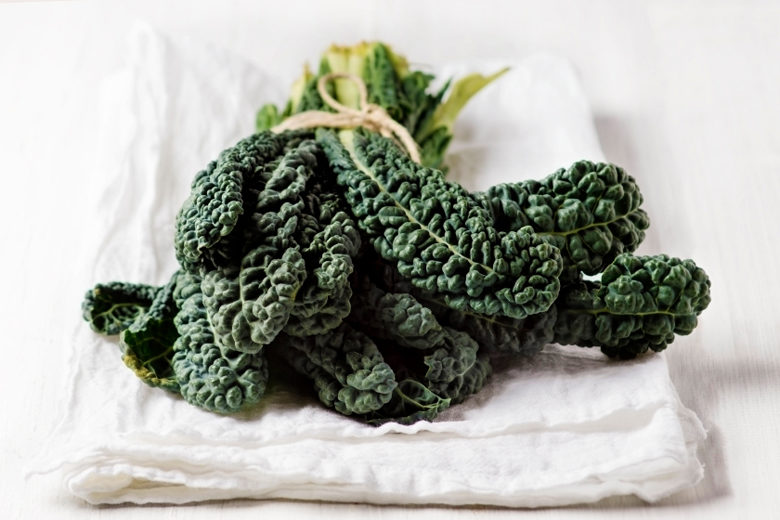
When was the last time you saw a goiter? Several months ago, the endocrinologist I work with was asked to consult on a goiter in a 24-year-old woman previously diagnosed with thyroid disease. I was asked to do a nutrition assessment. Her daily diet included large amounts of kale and, in the previous month, she had used a green juicing diet that included kale, spinach and broccoli. I decided to explore this popular diet and its potential risks, especially in people with thyroid disease.
Kale has grabbed the spotlight in the “superfoods” department. It’s rated among the top ten healthiest foods, packing a lot of nutrition into a low-calorie food. It's a cruciferous vegetable and belongs to the Brassica family along with cabbage, broccoli and Brussels sprouts. A cup of kale contains 7 grams of carbohydrate, 1 gram of fiber, 2 grams of protein, 29 mg sodium and 299 mg of potassium. Nothing here to get excited about.
Where kale stands out is in the vitamin department. It has 206 percent of the recommended daily allowance for vitamin A; 134 percent of vitamin C and 684 percent of vitamin K. It is also contains phytochemicals such as carotenoids and flavonoids.
But kale does have a downside — it also contains a chemical called thiocyanate, making it goitrogenic. Goitrogens are substances that interfere with the uptake of iodine and can cause an enlargement of the thyroid gland.
In healthy individuals, foods containing thiocyanate will not cause thyroid disease. However, goiter can develop in patients with underlying iodine deficiency. The good news is that goitrogens (such as those in kale, cassava and bok choy) are usually completely destroyed during cooking, but eating excessive raw kale can be a problem.
The juicing craze — especially the recent “green juicing" — also has the potential to cause problems in people with thyroid disease. Green juicing includes a combination of raw green vegetables including kale, cassava, spinach, cabbage and broccoli, making this so-called healthy drink not so healthy for some individuals. Large amounts of vitamins A and K, both fat-soluble vitamins that are stored in the body, can be toxic also.
When it comes to these so-called “superfoods,” more is not necessarily better. These are often foods that get far more attention than they deserve and can wind up causing serious consequences.

